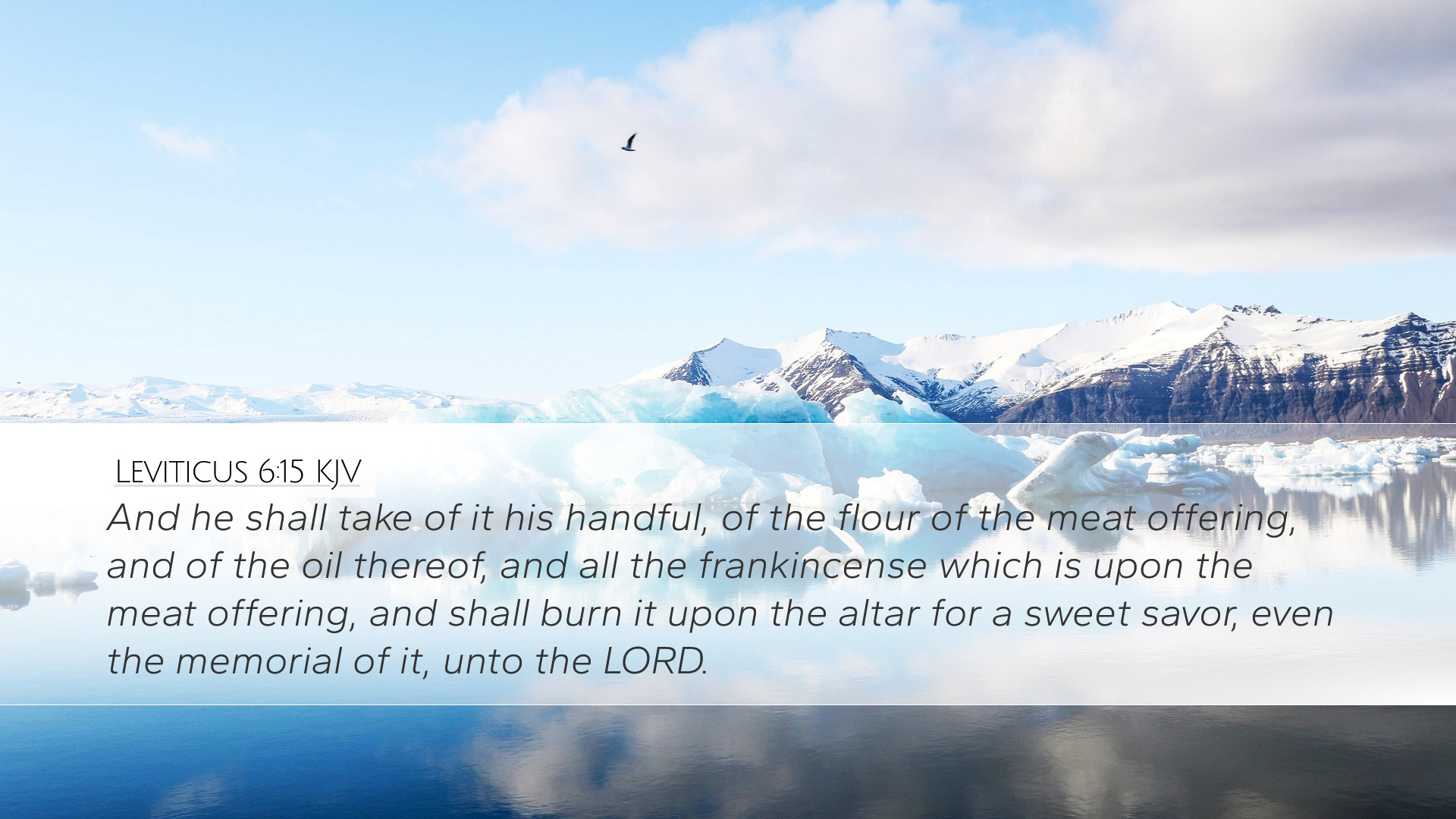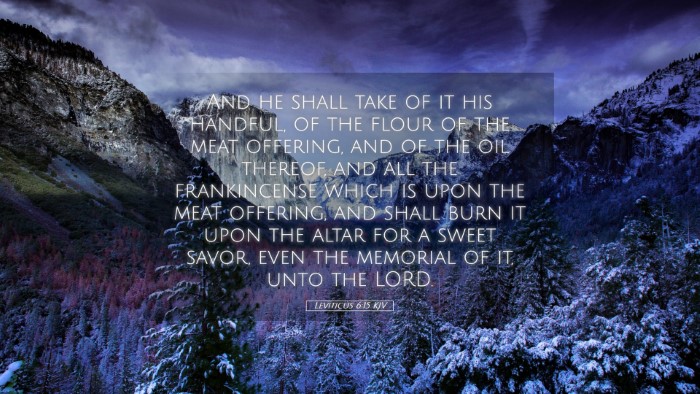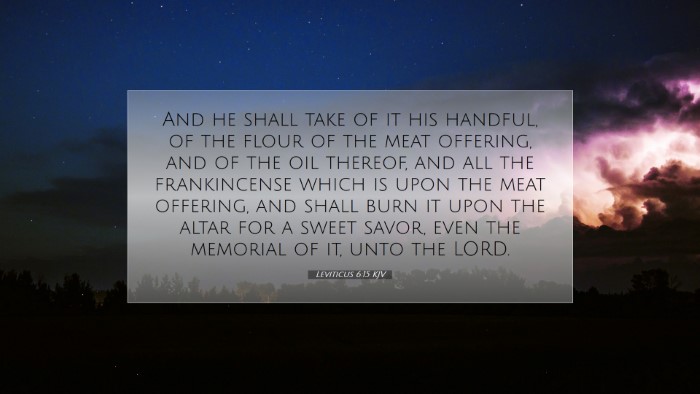Commentary on Leviticus 6:15
Leviticus 6:15 states: "And he shall take of it his handful, even a memorial of it, and burn it upon the altar for a sweet savor unto the LORD: it is an offering made by fire unto the LORD." This verse is part of the instructions given to the priests concerning the offerings made by the people of Israel, particularly the grain offering, also known as the meal offering.
Contextual Overview
This chapter delves into various offerings designated for the Lord, emphasizing the significance of the grain offering. These offerings were integral to the worship practices of the Israelites and symbolized the people's dedication and dependence on God.
Significance of the Grain Offering
The grain offering represents the fruits of the earth and is a way for the Israelites to acknowledge God's provision and express gratitude. Matthew Henry notes that the offering is made with the intent of being a token of gratitude for the bountiful harvests God provides.
- Representation of Human Labor: The grain offering symbolizes human labor and effort transformed into produce, representing a grateful heart.
- Expression of Consecration: It is an act of consecration, signifying the devotee's acknowledgment of God’s lordship over their lives.
Memorial Offering
In the phrase "a memorial of it," the word “memorial” carries a rich theological weight. Adam Clarke expounds on this, suggesting that the handful taken from the grain offering serves as a representation of the whole offering—in other words, it signifies the intent and purpose of the larger whole being dedicated to God.
This highlights the principle that the act of offering, even if small, is valuable when done with sincerity and devotion. It emphasizes the importance of intention in worship, aligning with the broader biblical perspective where God looks upon the heart rather than merely the outward performance.
Burning Upon the Altar
The act of burning this handful on the altar for a "sweet savor unto the LORD" is significant. Albert Barnes comments that the act of burning signifies the complete dedication of the offering to God. It is often interpreted as pleasing to God, illustrating His acceptance of the worshiper’s devotion.
- Symbolism of Fire: Fire is a purifying agent and represents the sacredness of the offering. The burning act shows that the offering is consumed utterly by God, allowing for a relationship built on trust and holiness.
- Savor unto the LORD: The phrase indicates God’s personal pleasure in the sacrifice, reinforcing the idea that God seeks relationship with His people and finds joy in their acts of worship.
Theological Insights
The themes present in Leviticus 6:15 provide rich theological insights for pastors, scholars, and students of the Bible:
- Worship and Sacrifice: The necessity of sacrifice in worship underscores that connecting with God requires the offering of something valuable, whether it be time, talent, resources, or physical items.
- Holiness and Acceptance: God’s acceptance of the offering emphasizes His character as holy and just, yet also merciful. Worship must be done according to God’s prescribed ways, which involve both heart and action.
- God's Providence: The offering highlights God's provision in life, acknowledging the constant need to remember and celebrate His goodness in everyday matters.
Application for Today's Believer
For modern believers, Leviticus 6:15 serves as a profound reminder of the nature of worship: it is both a personal act of devotion and a corporate expression within the community of faith. The practices established in the Old Testament continue to influence contemporary worship as believers recognize the need for heartfelt offerings to God.
Practical Steps for Application
- Prioritize Spiritual Offerings: Believers can offer their time, talents, and resources in ways that honor God and contribute to the church family.
- Develop Intentional Worship: Every act of worship should be approached with a sense of reverence and sincerity, reflecting the heart’s intent rather than mere obligation.
- Recognize God's Provision: Regularly acknowledge and celebrate the ways in which God has provided, fostering a spirit of gratitude among the community of believers.
Conclusion
In summary, Leviticus 6:15 encapsulates vital truths about worship, sacrifice, and the intrinsic nature of God's relationship with His people. The offering's memorial aspect, accompanied by the sweet savor of acceptance, reinforces the desire for a vibrant spiritual life characterized by sincere, heartfelt worship to God.


